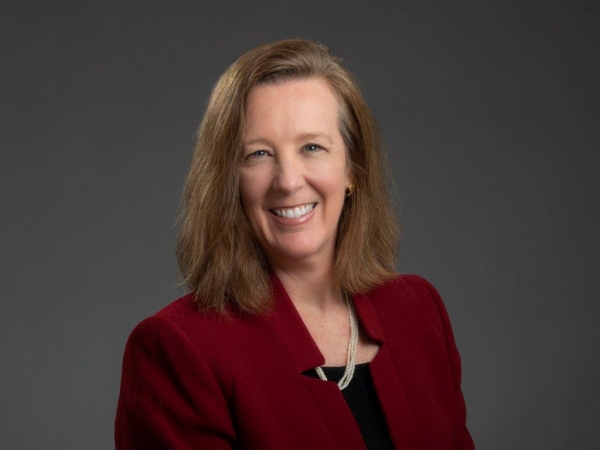Perspectives
The Contemporary Chief Learning Officer: A Conversation with Sue Lawler
An energetic, insightful health care executive, Sue Lawler serves as the Leadership and Learning Academy Director at Rush University Medical Center. With a CPA, MBA and PhD., Sue made learning the “true north” of her own professional development and career journey. Her strategic impact as Chief Learning Officer at values-driven Rush University Medical Center is neatly complemented by her volunteer commitment as a coach at the Career Transitions Center.
The profile of a contemporary Chief Learning Officer is exciting, emerging, evolving and essential for success in health care organizations. At InveniasPartners, we believe Chief Learning Officers have a critical role on the leadership team. Indeed, today’s CLO is mission-focused and plays a critical role in delivering exceptional patient care, strengthening customer service and addressing the elimination of disparities in health care. We recently shared time with Sue to learn more about how she and her team navigate across an academic health system to transform a contemporary health care organization.

IP: How are the CLO’s responsibilities connected to an institution’s strategy and core values?
SL: At Rush, we invest in our mission by investing in our people. My team is part of human resources, so our work includes the typical, necessary programs such as new employee orientation and new manager training. Additionally, we facilitate leadership cohorts and advise on training for specific departments. We work closely with HR business partners, the organizational effectiveness team and employee and labor relations. At the core, each educational experience provides Rush employees an opportunity to learn the culture and values of our institution.
To start, we keep the institutional vision — the Rush learning community will be the leading health sciences university committed to transforming health care through innovative research and education — at the forefront of our work. And we make sure that Rush’s I CARE values — innovation, collaboration, accountability, respect and excellence — are incorporated and embedded in each learning experience. I CARE is a roadmap to work across the institution vs. solely along functional routes.
IP: How does the Chief Financial Officer measure the return on the investment for learning?
SL: I admit that being a CPA and having an MBA makes discussions with Finance easier as we speak a common language. Their primary concern is how we effectively use the budget and can we scale our impact. Reduced turnover, increased employee satisfaction and efficient operations are the basic metrics. However, increasing innovation and improving wellness are measures of sustainability. Achievements in these areas help to streamline our business and accelerate community impact. Rush recently appointed a Chief Wellness Officer and we work closely to ensure our learning programs impact his objectives too.
IP: As Chief Learning Officer, how are you involved in organizational transformation?
SL: The Leadership and Learning Academy is positioned to support existing leaders by offering supportive tools and developing learning based solutions for the challenges they face. We regularly receive special requests to support leaders and we collaborate closely with them to address tough problems. In advance of developing any program, my team researches the issues and opportunities to make an impact. For example, advancing women into leadership roles is an industry priority. According to 500 Women in Medicine, over 40% of medical school graduates have been women, yet women constitute only 22% of full professors and 16% of deans and department chairs in US medical schools. Our women’s leadership development program reflects Rush’s firm commitment to diversity and inclusion. We invited a group of women to get involved upfront in the program design, utilized senior leaders to facilitate and incorporated a nomination process for high-potential enrollees. The program is viewed as widely successful as is the Rush Interdisciplinary Leadership Program, which brings together emerging clinical leaders to equip them for future roles. I’m confident that we are helping to transform Rush through these and other endeavors.
IP: Do you see yourself as a curator of learning moments?
SL: Yes, that’s a very good description. At Rush, we are intent on mixing up our delivery methods and “flipping the classroom.“ Overall, we need more blended learning – a combination of online, interactive, in person and video sessions. For example, we want to increase use of micro-learning and digital tools such as short videos that are pushed to attendees at regular intervals. We are investigating off-the-shelf content for important areas such as cybersecurity, implicit bias and cultural competency. Notably, we are actively incorporating wellness concepts and actions into our Leading with Distinction program.
People at all levels are time constrained; they just don’t have five days to sit in a classroom to study a topic. So, we are putting valuable content online and expecting a certain level of advance work before attendees get together to apply what they learned during an in person session. We also look to retire programs at regular intervals. Our flagship course Foundations of Leadership had positive evaluations, but the completion rate was weak as the six half-day modules took a lot of time. Our popular new, two-hour Leading with Distinction program opens with meditation led by a Rush doctor of oriental medicine. Also, we need to leverage the best practices from other industries such as manufacturing, where investment in LEAN and Six Sigma training could translate to health care professionals.
IP: What advise do you have for CLO colleagues as they seek to build reputation with their counterparts on the leadership committee?
SL: Hire great people who bring different talents, experiences and skills to the table than you do. Be comfortable innovating and try new things. Measure your outcomes in the spirit of continuous improvement. Be focused on scaling the program.
IP: Have you discovered a few universal tips and truths for effective leadership?
SL: Yes! Start your day with mindfulness, be open to feedback and make time to celebrate and have fun.
IP: Thank you Sue for your leadership and passion for learning!

